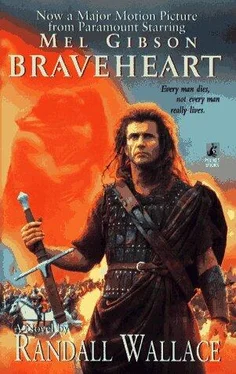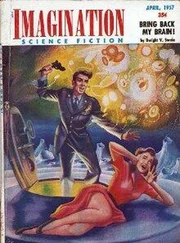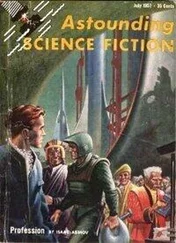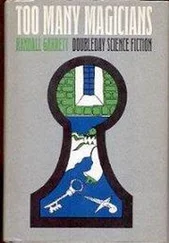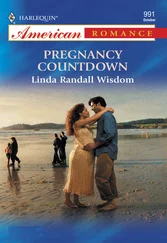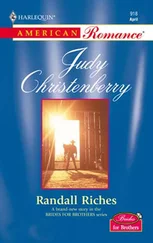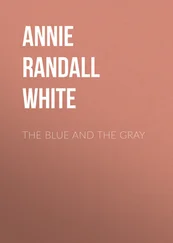A dream! Still upset, still grieving, he got up and went looking for his uncle.
William moved down to the room where his uncle would be sleeping. He opened the door. The bed had not been slept in. He moved downstairs to the kitchen, but his uncle was not there either. For a moment William thought that his uncle might have abandoned him. Then the boy heard a strange, haunting sound—distant, carried by the wind. He moved to the window and saw only moonlight. He opened the window and heard it more clearly: bagpipes.
William lit a candle and threw open the door. Wind rushed in and blew out his candle. But he heard the pipes, louder in the wind.
William was barefoot and cold, covered only by the nightshirt, but he stepped outside. The sound of the pipes was growing louder. He moved through the moonlight, drawn toward—the graveyard! He stopped as he realized this, then forced himself on.
He moved to the top of the hill where his ancestors were buried and discovered a haunting scene: two dozen men, the farmer/warriors of his neighborhood, were gathered in kilts—and, among them, a core of bagpipers. The pipes wailed an ancient Scottish dirge, a tune of grief and redemption, a melody that, with some modification, has come down to the modern time as “Amazing Grace.”
Then William saw his uncle standing at the fringes of the torchlight. Uncle Argyle must have heard them and walked out, too. But what was he doing holding the massive broadsword?
William moved up beside his uncle. Argyle glanced down but said nothing.
“What are they doing?” William whispered
“Saying good-bye in their own way—playing outlawed tunes with outlawed pipes.” They watched as the farmers stood enriching the graves, the music flowing through their veins. Some prayed; some wept; some, their lips moving without their hands making the sign of the cross, seemed to mutter private vows. Argyle whispered, half to William and half to himself, this, dead from fighting the English.”
William took the sword from his uncle and tried to lift it. Slowly, Argyle took the sword back.
“First learn to use this,” Argyle said. He tapped William on the forehead with the tip of his finger. “Then I will teach you to use this.”
With an expert’s easy fluidity, he lifted the huge sword. It glistened in the torchlight. The music played; the notes mingled with the smoke of the torches, hung in the air, swirled in the Scottish breeze, and rose toward the stars.
The next morning, William and his uncle rode off in a farm wagon. William held his possessions in a small bundle in his lap. The wagon rattled, lightly loaded with a few of his father’s clothes, the wooden chest that held the dress William’s mother had worn when she and his father had married, and, wrapped in a length of woolen cloth woven in the pattern distinctive to Wallace was the broadsword his father had carried into his last battle and his friends had brought back with his body.
William glanced at his uncle as if afraid of his disapproval if he should look back. They reached the top of the hill on the road that led out of the valley where the Wallace farm lay. The horse blew with relief as the road leveled out, and the wagon rolled easier as it stretched ahead.
And there William did glance back just once to see the deserted farmhouse.

THE REBEL

YEARS LATER, AN ENGLISH SAILING VESSEL RODE AT ANchor at the Pas de Calais. The entire southwest of France was under the control of Edward the Longshanks, the English king, yet still this vessel was surrounded by a contingent of soldiers, half of them attired in the silks and plumes of an honor guard and the other half in the practical battle gear of fighting soldiers. The former unit had arrayed themselves upon the main deck, whereas the rougher fellows stood in guard positions upon the docks. Out on the water, halfway between the shore and the horizon, rode three warships, swiftest in the English fleet, on watch for the pirates who plied the channel or the Spanish or anyone foolish enough to accost this convoy on this day.
A lookout on the topmast of the flagship was watching the shore, not the sea, and when he sang out, “There! Coming!” the sailors poured up from belowdecks and the parade soldiers lined the rails.
Six French knights, armored as light cavalry, galloped up the road, and then a carriage, flying from its corners the fluer-de-lis, gold on a French blue background, sped into view. Its quartet of jet black horses was lathered and sweating; its wheels drummed sudden thunder on the rough planks of the dock. Six more horsemen rode behind.
The procession lurched to a halt beside the ship and the captain stepped quickly across the flat timbers bridging to the dock, and there he swept the hat from his head and bowed low. Footmen sprang from their perches at the rear of the carriage; one opened the carriage door and the other placed a golden step below it. From the carriage emerged the brother of the king of France, himself a prince. He was thirty-eight years old, fair-haired and handsome; he wore the finest clothes that anyone on the ship had ever seen.
But he was not the one they had sailed across the channel to meet. Stepping from the carriage into the sunlight was Isabella, his niece, daughter of the king of France, bride-to-be of Edward, son of Longshanks king of England.
The captain had seen the sun, after a storm-tossed night at sea, rise above the alabaster cliffs of Dover. He had seen the Milky Way on a night so dark and calm that the stars reflected on the black surface of the water and the ship seemed suspended in the heavens. But as he lifted his eyes for his first look at the future queen, the breath left his body, and he knew he would never see anything nearly as beautiful as this blue-eyed woman who kissed her royal father upon his cheek and floated across the bridging timbers into the ship as the sun played upon her yellow hair.
Her name was Isabella Maria Josephina Christiana Marguerita Rochamboulet—well, she had more given names than she had years—And those were just the Christian names. Her family names and titles, in a world where inheritance of crowns depended upon connections of blood and marriage, were a litany as long as the Latin Mass. She had been educated in languages, for which she had great talent, and music, in which she had little, but had received no instruction at all in the art of politics, and it would be years before anyone realized that her gifts in that arena were greatest of all. But she was a woman, and a beautiful one. Yet she could have been utterly unremarkable and still have found herself on this ship, bound for the same destination, because of all those names and titles.
Longshanks had chosen her to be his daughter-in-law because her connection to the throne of France reassured the French nobles of their prospects in the kingdom he sought to create through the union of the two realms. And the king of France had allowed her to accept the proposal because he too wished to see France and England under one crowned head, though with Longshanks already old and his son reputed to be weak, the French king had a different expectation from Longshanks about whose head would wear the crown.
As Isabella stood at the rail and watched the sails fill with breeze, she was aware that nothing she had ever accomplished or said or thought or felt had ever had any result whatsoever. She was a princess already; she was going to be a greater princess still. People would bow and curtsey and would obey her every whim, to marry a man she had never met in a country to which she had never wished to go. No one had every asked for her consent in the arrangement. She had no power at all. Isabella would only have one man, and he was already chosen. She was a virgin—a royal physician had certified that—and once she married she was forbidden to have any relationships beyond those with her husband. To violate this law was treason.
Читать дальше
